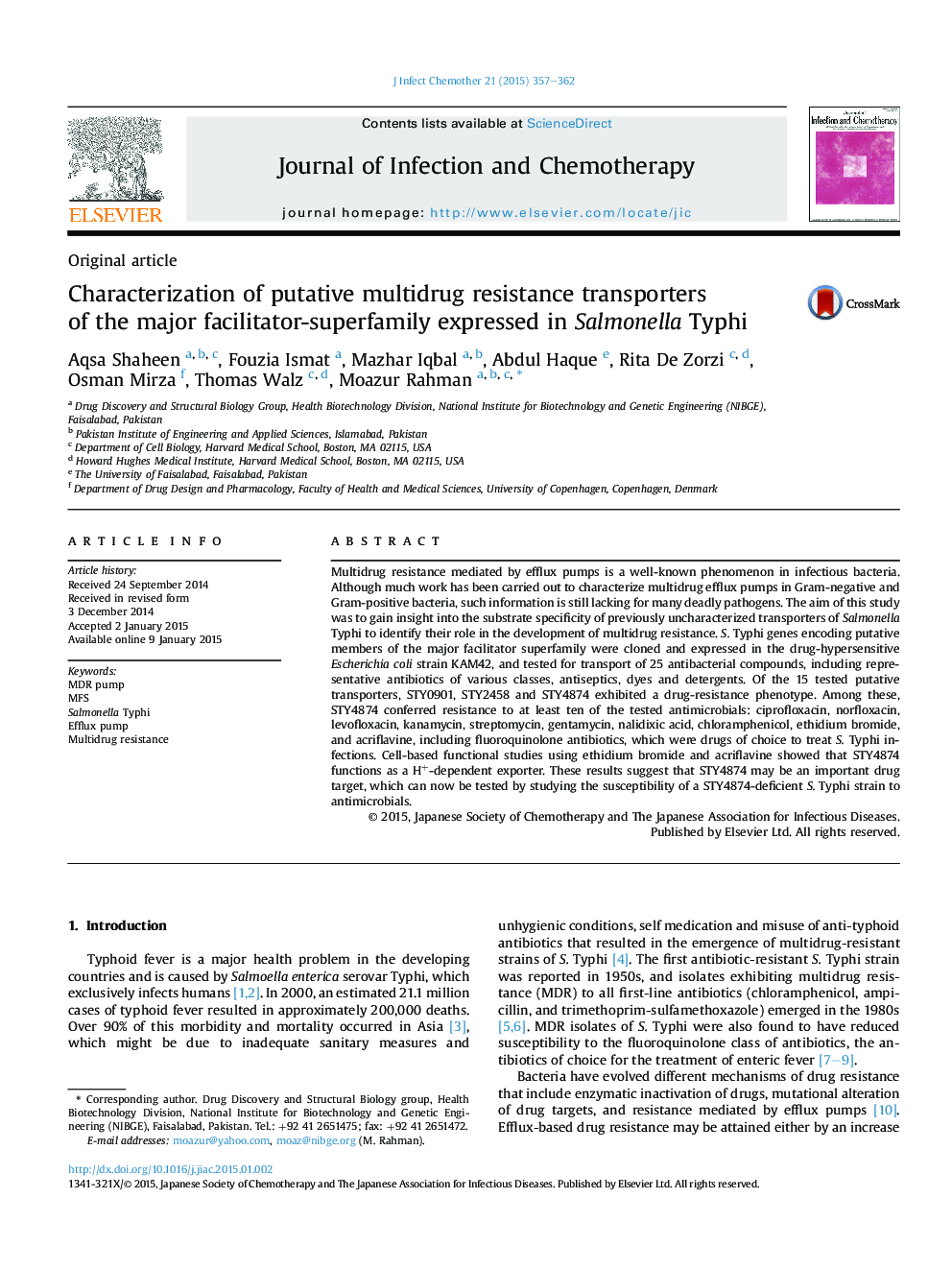| Article ID | Journal | Published Year | Pages | File Type |
|---|---|---|---|---|
| 3376810 | Journal of Infection and Chemotherapy | 2015 | 6 Pages |
Multidrug resistance mediated by efflux pumps is a well-known phenomenon in infectious bacteria. Although much work has been carried out to characterize multidrug efflux pumps in Gram-negative and Gram-positive bacteria, such information is still lacking for many deadly pathogens. The aim of this study was to gain insight into the substrate specificity of previously uncharacterized transporters of Salmonella Typhi to identify their role in the development of multidrug resistance. S. Typhi genes encoding putative members of the major facilitator superfamily were cloned and expressed in the drug-hypersensitive Escherichia coli strain KAM42, and tested for transport of 25 antibacterial compounds, including representative antibiotics of various classes, antiseptics, dyes and detergents. Of the 15 tested putative transporters, STY0901, STY2458 and STY4874 exhibited a drug-resistance phenotype. Among these, STY4874 conferred resistance to at least ten of the tested antimicrobials: ciprofloxacin, norfloxacin, levofloxacin, kanamycin, streptomycin, gentamycin, nalidixic acid, chloramphenicol, ethidium bromide, and acriflavine, including fluoroquinolone antibiotics, which were drugs of choice to treat S. Typhi infections. Cell-based functional studies using ethidium bromide and acriflavine showed that STY4874 functions as a H+-dependent exporter. These results suggest that STY4874 may be an important drug target, which can now be tested by studying the susceptibility of a STY4874-deficient S. Typhi strain to antimicrobials.
